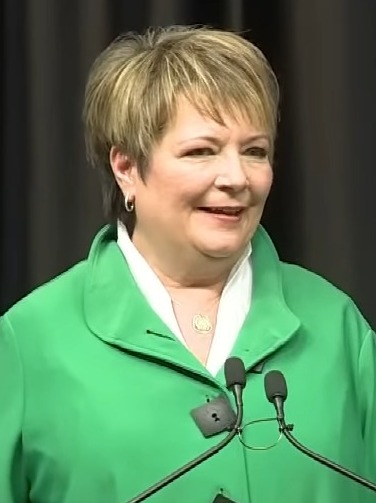Democratic Wisconsin Judge Upsets Republican Opponent in Race Centered on Abortion

Women don’t get to decide their bodies, but court judges do. And that’s why the race of the Wisconsin Supreme Court on April 4 was important, because the elected judge is who determines the policies for Wisconsin residents in the future.
According to CNN on March 23, “In a state where control is split between a Democratic governor and a Republican-controlled legislature, the high court could decide the outcome of legal battles over the state’s abortion laws, its legislative maps and more.”
In the race for the Wisconsin Supreme Court on April 4, the Democrat judge used abortion bans as her central argument. The race was tense and competitive. Eventually, the liberal candidate, Janet Protasiewicz, won by a staggering 11 percent over Daniel Kelly, her Republican challenger.
In the race, she talked about on how voting in a the Republican judge would make overturning abortion bans from 1849 and all cases today impossible in the future.
“If my opponent is elected, I can tell you with 100% certainty, that 1849 abortion ban will stay on the books. I can tell you that,” Protasiewicz said in Tuesday’s debate.
After the race, the liberals now hold a 4-3 majority on the court to 2025 at least. The win makes Democrats hopeful, for they could make other decisions, including abortion and labor rights, and ensure all voices in Wisconsin are heard, no matter what side of the political spectrum they fall on.
In a Wisconsin Examiner article that examines the current conditions of abortion access in Wisconsin, Helms, a neurologist, detailed her concerns.
“This is not a niche issue in women’s reproductive health. This is legislators saying, ‘We can legislate how health care is delivered to people and what health care is delivered to people,'” she said. “This is about men and women and young people and old people and decisions we make about our lives. Do they belong in the hands of legislators or do they belong in the hands of patients and doctors?”
Debates on abortion rights have existed since the 19th century, yet they remains controversial today, particularly after the U.S. Supreme Court decided to override Roe v. Wade in 2022, which was a constitutional protection of abortion rights since 1973.
A Williston student who wishes to be anonymous believes “The right to get an abortion is one of the most fundamental human rights: gaining control over one’s body. ”
Similarly, senior Alexis Caines believes lawmakers should protect women’s rights, in Wisconsin and every other state.
“I think there should 100% be legislation made to protect women’s rights because its our constitutional right as American citizens, ” Alexis, who wrote her Williston Scholars History project on the politicization of abortion, said.
Alexis acknowledged how her identity puts her in a advantageous situation in regard to potential abortion bans.
“As a white female from a liberal state like Massachusetts,” she said, “I recognize that I’m in a really privileged position when it comes to reproductive health & women’s rights in general. ”
Realizing her own advantage, Alexis is constantly seeking ways to help more people in the community.
“I always encourage people to show their support by donating or even just spreading the word about companies who help protect reproductive rights,” she said.












